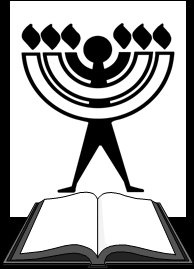WCHJ Jewish History Buffs
| The next meeting of the History Buffs is on February 17 at 10AM at Ann Toffel’s (16 Quincy Lane, White Plains, 914-948-3332. The book to be discussed is The Chosen by Chaim Potok. There is no charge for the club, and all are invited. | The Jewish History Buffs meet on the 2nd Saturday morning of each month, at members’ homes, from October through June. With the help of some coffee and something to munch on, we tackle Jewish history from its earliest beginnings through issues related to the formation and preservation of modern Israel. Religion is of course an integral part of Jewish history, and so becomes part of the discussion whenever relevant, but we try to keep a relatively objective view in our readings and discussions, viewing religion primarily from an historic perspective.Three years ago we completed the cycle from the earliest entry of Jews into world history to the founding of Israel and then began again, expanding our reading and interests. We use the curriculum guide provided by the Society for Humanistic Judaism and the "Historical Atlas of the Jewish People" by Eli Barnavi, suggested in the curriculum. In addition, we have included in our readings Max Dimont’s “Jews, God and History”and “Jews in America”, as well as writing on biblical archaeology. Last spring the focus was on “Constantine’s Sword”, a fascinating description of the seeds of anti-Semitism in the Catholic Church, written by a former Catholic priest. We also download original writings mentioned in the syllabus, and members bring in their own discoveries—books, articles, topics they’d like to explore further, or just opinions and questions.In biblical history we discussed what we can know and what remains myth, the origins of the written Bible, the development of monotheism and a religion which included, but then went beyond ceremony and ritual to stress moral imperatives, laying the way for ethical monotheism, and eventually secular humanism.We then followed the Jewish people as they fell subject to Persians and Assyrians and Greeks and Romans, adopting new ideas from the conquerors, splitting into very contentious factions, but always retaining their Jewish identity. Every destructive event in Jewish history seems to have contributed to the strength and determination to remain one people. They modernized, they adapted, and they survived. In the past two years we spent more time on topics we had only touched on earlier, the birth of Christianity, the fundamentals of Islam, and the relationship of Judaism to the two religious spin-offs. This fall finds us in the aftermath of the Protestant Reformation. The Jews are about to leave the ghettos of Europe. Western European Jews will gradually participate in the the Western European Enlightenment, while the Jews of Eastern Europe will struggle much longer to escape the ghetto mentality of the shetls. Finally, we will reach the beginnings of Zionism and the founding of Israel, although experience suggests that we will take enough detours to find we need at least another year to get to that point. |
|
For information about topics, readings, and locations for specific meetings, please email Pat Hammer or call (914)693-3156.
